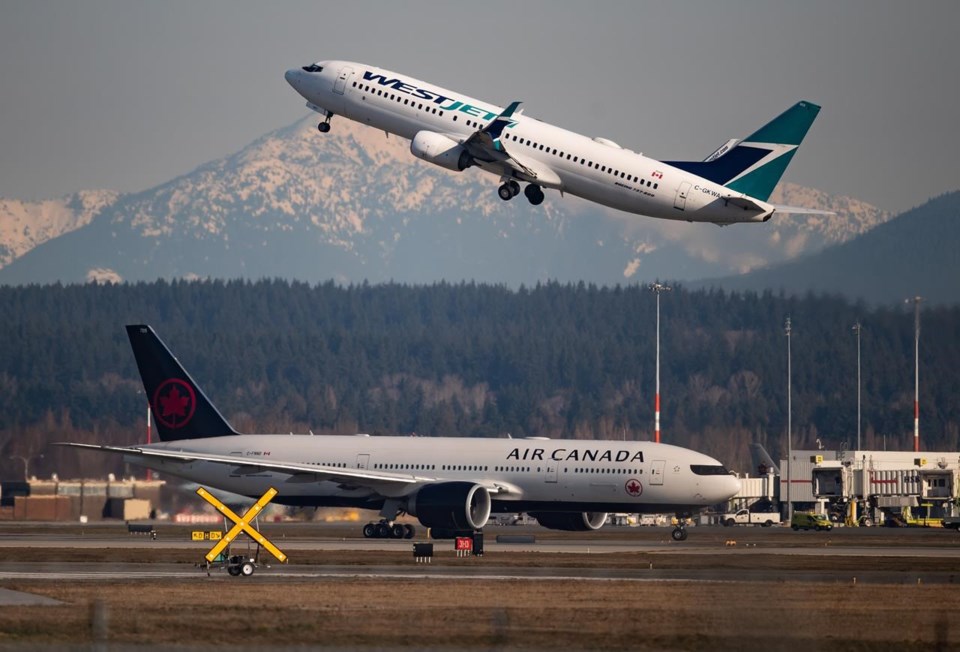RICHMOND, B.C. — A new study will collect carbon emissions data from British Columbia's regional airports with the goal of getting all airports in the province to net-zero by 2030.
The study is part of the $875,000 announced by the government for research aimed at making the airline industry more environmentally sustainable after the province signed a memorandum of understanding with Vancouver's airport.
A second study will look at accelerating the development of sustainable low-carbon aviation fuels, something Premier David Eby says is necessary for the future of air travel.
Tamara Vrooman, president of Vancouver International Airport, says one option uses tallow byproduct from meat processing, and the potential for using wood waste is also something they'll be looking into.
Vrooman says the airport is "well on its way" to becoming net-zero by 2030, which would make it the first Canadian airport to do so.
A third study plans to explore opportunities to enhance the movement of people and goods between the airport, Vancouver Island and beyond without increasing traffic congestion on the roads.
"We know that we already have significant issues with congestion in the Lower Mainland and (the airport) is next to communities, schools, shopping districts, where it wouldn't be appropriate to put that volume of trucks," Vrooman said.
"So, we're starting some early thinking about could we have one of the first air-to-marine terminals where we could take cargo and move it directly to (a) marine environment, either ocean or river."
This report by The Canadian Press was first published March 21, 2024.
The Canadian Press



